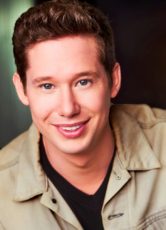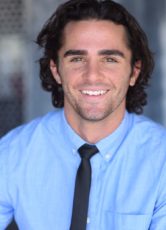Seven Signs You Have A Professional Acting Career
June 28, 2023
I’ll never forget the eye-opening moment when I was asked by an agent whether or not I wanted to be an actor. I was crushed. After all, this was years into my ‘career’ (or what I thought was my career).
As difficult as it was to have that question asked, it changed my perspective. It made me realize that there is an industry standard and that – maybe – I wasn’t playing my cards right.
Now, I look at things differently. I learned to judge my work from the viewpoint of someone who would want to hire me.
Becoming a professional actor is all about a series of step-by-step accomplishments, much like in a college program. It will take hundreds or thousands of hours of studying, preparation, application and practice to get to a professional level. The actor hobbyist and the professional are vastly different.
Curious to know which category you fall under? Here, I’m going to provide some qualities that all professionals share to move forward and ultimately… make money.
1. Getting paid for your work
I would say that the first time you get booked for a paid project through an agent is a pretty good indication that you are on your way to being, or already are, a professional actor! Having said that, don’t skip out on your acting training just because you are booking work. Continuing your education feeds your momentum. If you’ve been working but haven’t taken a class in a while, consider taking something new to you or something that will strengthen a big weakness of yours.
2. You have a professional headshot
A portrait session with a reputable photographer (recommended by your agent or manager, most likely) that produces at least one theatrical headshot and one commercial headshot is essential. A simple black border with your name at the bottom (legibly- i.e. not in cursive!) will suffice. A selfie or Instagram photo will instantly make you less of a professional. And it could seriously damage your ability to book.
3. You have an Agent and/or ‘Team’
A top requirement to become a professional working actor, right after your training, is having a quality agent. Although the majority of your work should come through them, you may also find work yourself, and most actors are constantly looking. Try a range of agents until you meet one that jives with you and understands your goals.
Not all agents are created equal! One agent may not be enough, however, and you may require a manager, publicist, lawyer, PR agent or more to be adequately represented. You may also choose to have different agents representing you in different areas (one for voice, one for theatrical, one for commercial, one for print, one for stunts, etc). The more helping hands you have, the greater the chance for success.
4. You invest in yourself
Acting is an investment. Headshots, acting websites such as Casting Frontier, classes, etc. all take a significant chunk of change to maintain. However, those who take their careers seriously do not skimp on ways to further their careers. Of course, some things you can do on your own, such as social media updates, or maybe even writing and producing your own productions (Ben Affleck or Matt Damon often do this). Use your voice to create what you want to see in the industry.
5.You put acting first
This comes off as a simple one, however, it is far from it. Auditions happen fast, with little notice and often with high expectations. An actor who is constantly missing auditions, requesting a change of time slots or is available with limitations such as: only on weekends, only on nights or only during the day, may not be cut out for a position in the film industry. Give yourself the best shot possible, and that means putting acting first.
6. You’ve found your ‘sweet spot’
Many people struggle for years with good acting talent, or having a ‘look’ that is not in demand. You may find that your hair color or length is not catching the attention of professionals. For example, commercial spots love a good haircut shoulder length and above. If you’re not getting in the door, something may be off with your look or may not be on trend. Actors do not always get the perk of looking exactly how they want. Professionals learn to find their best ‘looks’ and stick to it.
7. You know how to fake it ’til you make it
That’s your golden ticket and your secret weapon. When you walk into the audition room, every casting director expects a professional regardless of experience level. A professional actor knows the rules of the casting room and is courteous. They keep their nerves in check, study the scene before arriving and are familiar with the script. If you’re a pro, you know how to slate well and have possibly seen the director’s previous work. These little things will make big impacts on the individuals you need to impress.
Whether you are a professional, aspiring, or acting as a hobby – remember to keep pushing forward, keep studying and keep showing up. Work on your positivity, support your industry peers, embrace your competition… and always, always be fearless!
Taylor Tunes (too-ness) is an actor located in Arlington, Texas.
Want to get your acting career started? Sign up or log in to Casting Frontier and start auditioning today!
You may also like:
- Tips for Performing Your Best Monologue
- What’s Your Vocal Range and Voice Type?
- The Top 3 Things a Hosting Agent Looks for in a Reel
Listening is Key: What Directors Look for From Actors in Auditions
June 9, 2023
I was speaking with a group of television and film directors and asked them what are the top 3 things they look for when watching actors audition. One of those items we agreed was essential: “listening and reactions.” Here, we’ll dive in and discuss why that is.
The reason was explained this way: Scenes are put together in post-production. Until that time, it’s not entirely clear when the director is going to need a reaction shot from an actor to liven up or help explain a scene. So in the audition, they’re looking closely to make sure that the actor doesn’t go flat – even for a moment – because that may be precisely the moment that your reaction is needed when a scene is being constructed.
They tell me that if an actor gives a solid reading, it’s obvious they know the requirements of the material and are skilled at bringing the words to life – even if it’s not exactly what they envisioned. On top of that, the actor has reactions that spark with honest, energetic life.
They’ll hire that actor over the actor who came closer to their vision in the reading but didn’t listen and react as well.
They figure that you can always direct a good actor to say a line differently, but it’s not as possible to direct them to be more compelling in their reactions.
As one of the directors said, “It’s like telling someone to be more interesting – and we don’t have time for that.”
They also agreed that in an audition, the focus and stillness that deep listening brings draws them into the reading and allows them to become fully involved with the actor’s emotional life through the intensity of their reactions. This makes them feel that they are already working with the actor.
This is in stark contrast to the actor who isn’t as focused on listening and reacting. This actor not only doesn’t draw them in, but they also appear to be reading at them, not speaking and listening with them.
Another positive benefit of deep, revealing listening appears when/if the audition is being taped. When directors are watching taped auditions it’s a two-dimensional experience. The actors who become contenders for the role are the ones who feel as if they are actually in the room with them.
These are the actors whose listening is so specific and powerful and whose reactions are so alive and original that they bridge the distance that the technology creates so that even if the director is watching them on an iPad in New York, they feel the actors’ specific energy and spark.
In order to have these jobs getting moments of reaction, you need a way of working that allows you to have the confidence to take the moments and to live in them. Most actors speed through the piece believing that it’s only their words that matter, and yet any director will tell you that it’s the reactions that are the actions of the scene.
Watching someone talk is not half as interesting as watching how those words are affecting another human being. It takes awareness, skill and guts to work this way – but it’s the only way to work if you want to book the job.
In closing, it’s good to remember that strong listening and reacting are not things that you can just pull out of thin air. The body goes to what it’s used to – and if the body isn’t used to the stillness and focus of listening in your daily life, it won’t go there in your work.
Paying attention to someone to the degree that you take in their words and feel them on multiple levels is actually pretty rare. Most people have mastered the art of “half listening:” listening just hard enough to plan their response. That’s not the type of listening that prompts the reactions that get jobs.
Practice in your daily life. Make a commitment to take people in as deeply as possible. See if you can turn your brain off and listen from the neck down. Feel your reactions in your body and let them pierce your heart.
As you continue to do this, you’ll find that your body will start to relax into a still, focused and open-hearted place that you can now access not only in your life but in your work.
And when this happens in your work, the people in the room will not just hear you but see you.
Remember, it’s the eyes that are the windows to the soul – not the mouth.
As we were wrapping up the discussion, we decided to see if we could create one sentence to sum up the importance of listening and reacting in the audition. Here’s what we came up with:
What you do with the words will get the director’s attention – but it’s what happens in your reactions that will get you the job.
Craig Wallace’s background in script development combined with his 20+ years of coaching actors enables him to find the job getting moments that others miss. His expertise in breaking down text and years of coaching experience has made him “L.A.’s go to private coach.” Sign up for his group or private classes at wallaceauditiontechnique.com
Want to land your next great acting role? Sign up or log in to Casting Frontier and start auditioning today!
You may also like:
- The Power of the Actor’s Giving Frame of Mind
- Should Actors Read Social Media Comments About Themselves?
- 4 Insights for New Talent from Acting Coach Larry Moss
Kate Winslet Overcame Drama Teacher’s Advice to “Settle for the Fat Girl Parts”
January 20, 2023
Good thing Kate Winslet didn’t listen to her drama teacher as a teenager. The instructor told her that if she continued to be overweight, she was likely to only get roles for “cute, fat best friend role or the ugly sister parts,” she told People in 2016. Instead of absorbing the criticism and allowing it to shape her expectations, Kate thought, “Oh, you’re so wrong!” and used the drama teacher’s words to motivate her.
Furthermore, Winslet shared with the mag that there were times she considered giving up on her acting aspirations altogether. “I was always the kid at the end of the line because my name began with W, and I always had big feet, and I was always wearing the wrong thing. I remember having a moment where I thought to myself, ‘This is so stupid. This is just a waste of my train fare getting myself into London for auditions.'” But then her inner convictions would chime in: “You’ve just got to keep going for it.”
Just after winning her third BAFTA award in 2016 for her performance as Apple executive Joanna Hoffman in Steve Jobs, Kate dedicated the moment to “all those young women who doubt themselves.” Speaking before cameras backstage, she gave the following inspiring advice:
“When I was only 14, I was told by a drama teacher that I might do okay if I was happy to settle for the fat girl parts. Look at me now! Look at me now! And so what I feel like saying in those moments is to any young woman who has ever been put down by a teacher, or a friend, or even a parent–just don’t listen to any of it because that’s what I did. I didn’t listen, and I kept on going, and I overcame all of my fears and I got over a lot of insecurity. And just keep doing it. And keep believing in yourself.”
Kate urged young women to stop doubting themselves, saying, “…You shouldn’t be doubting; you should be going for it.”
Want to get your acting career started? Sign up or login to Casting Frontier and start auditioning today!
Related articles:
Kate Winslet’s Acting Advice
10 Celebrated Actors Share Acting Advice
Inspirational Life Advice From Celebrated Actors




